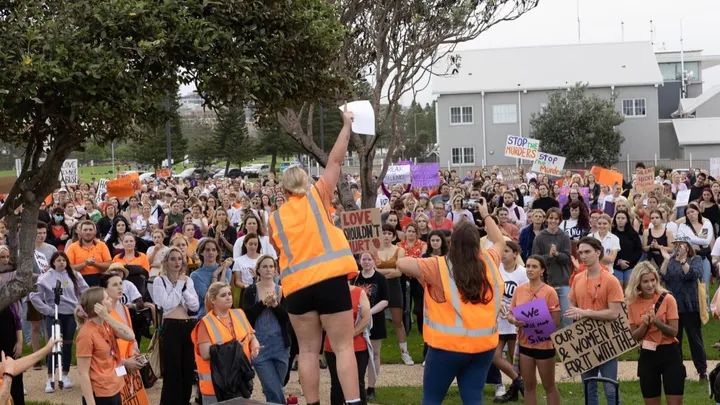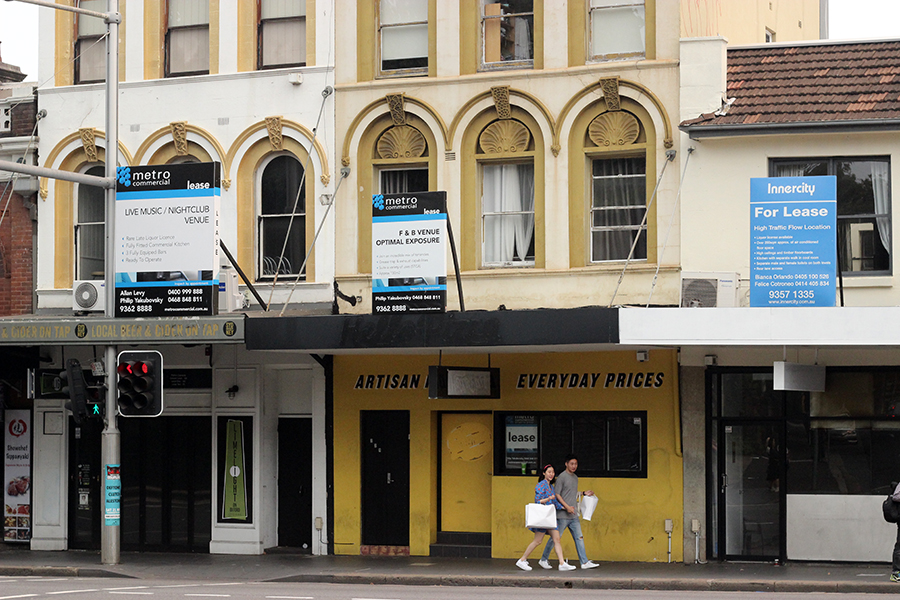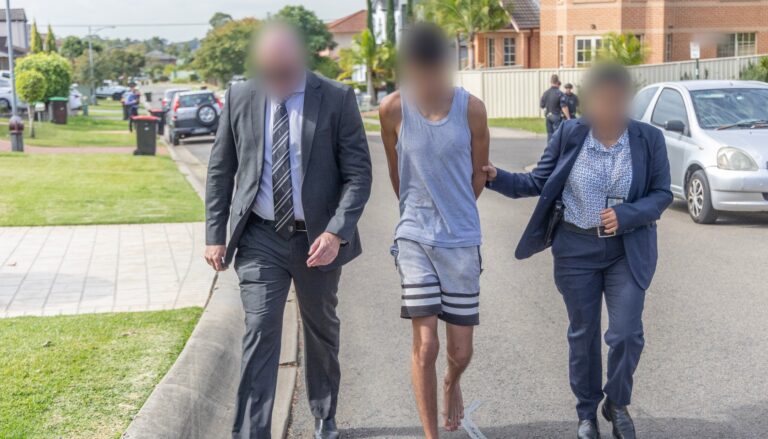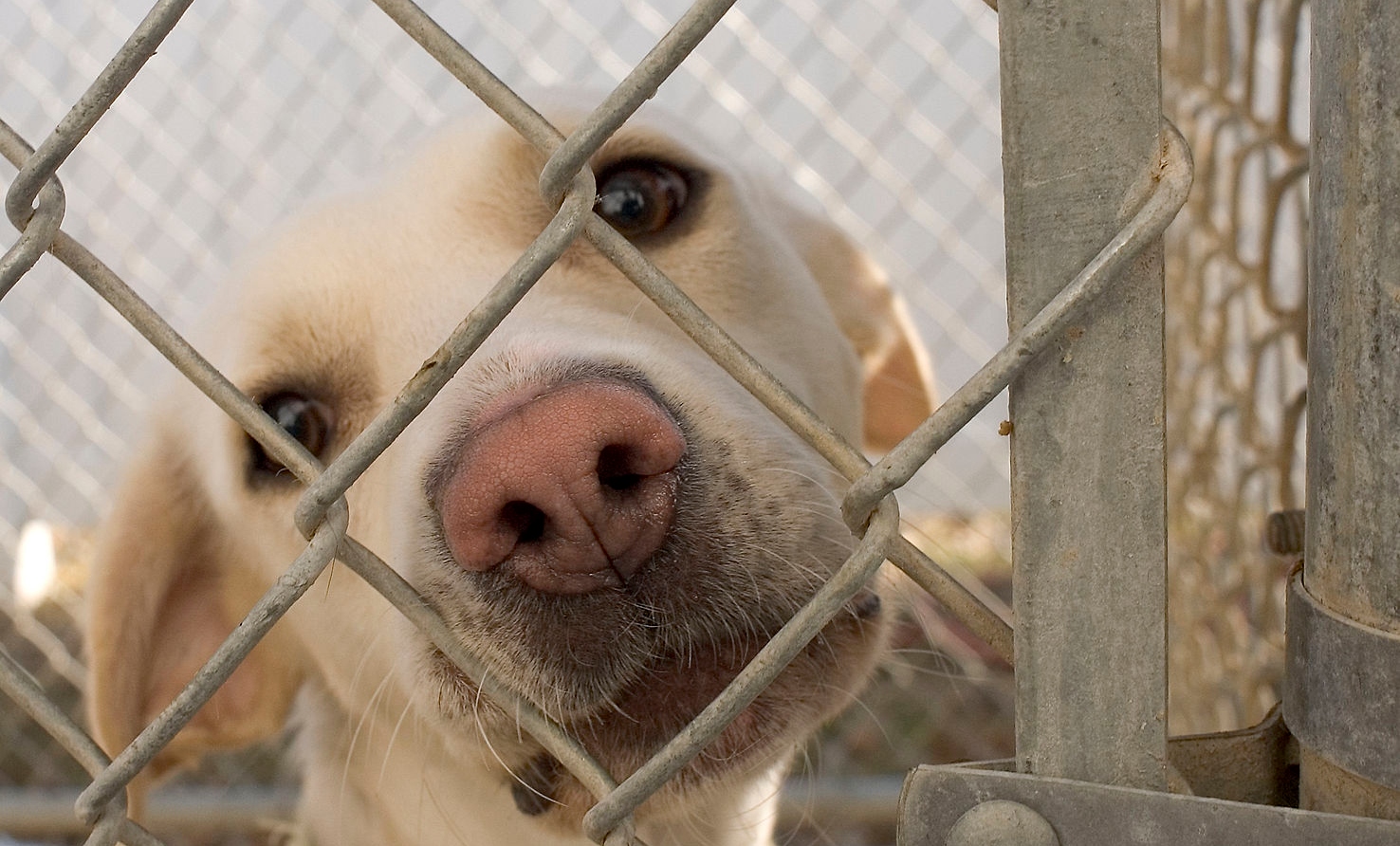
2020 foresight: city retailers struggling

By ELIZA SPENCER
After bushfires, viruses, and redevelopments, Australian businesses are counting the costs. A slower than expected start to financial trading in the new year has taken a toll on businesses across the city. Feeling the effects of lower profits across the sector, businesses small and large are facing the risk of closure as shops stand unoccupied and operational costs remain restrictively high.
Since the start of the new year, 169 closures have been confirmed across the country from larger brands such as Bose, Harris Scarfe and Jeanswest, either shutting stores or moving into administration. For small businesses across Sydney, the closure of larger stores is a concerning sign, even as commercial rental costs decrease. The latest figures from the Commercial Property Guide reveal that rents are beginning to drop, after they peaked in November of 2019. Despite this, shops continue to lie empty across Sydney.
“A third of the City’s workforce is employed in 20,000 small and medium businesses, contributing more than $40 million to our economy every year,” revealed Lord Mayor of Sydney, Clover Moore. “Developing and supporting small businesses is vital, not only to our economy, but to the way we build community and experience the city.”
Redevelopment brings opportunity and losses
Redevelopment of existing commercial locations for high-density apartments and units is an additional factor in businesses shutting their doors or being forced to move.
Petria Hogarth was employed at The Works Showroom on Glebe Point Road until it closed its doors due to planned redevelopment of the space for apartments. “I was told the lease on the building was ending, but the store re-opened a few weeks after closure,” she said. “One of the store holders had taken on the lease, but replaced the original staff.”
The store is now home to a small plant store, with less than six months until redevelopment begins. “I think the core of Glebe is the community feel,” Ms Hogarth said, “which is generated by the small business… The council should be doing more,” she added.
For Ken Williams, co-owner of Dimitri’s Pizzeria in Darlinghurst, relocating from their former Surry Hills’ premises lead to new opportunity. “We basically had our hand forced in terms of relocating. Our previous landlord is redeveloping the property,” he said. “Our current location caught my attention mostly due to the proximity and the fact that it is a much more functional space for our business and also a vast upgrade in terms of our capacity.”
Dimitri’s new location, close to St Vincent’s Hospital on Oxford Street, is not as central as their previous location in Crown Street, but Mr Williams is hopeful of the area’s revival. “Obviously this area has seen better days, though there is still lots of steady foot traffic. Oxford Street is a busy thoroughfare both day and night. We are hopeful that the area will be further reinvigorated, and more small bars and businesses find their way back to the area with the recent repeal of the lockout laws.”
The repeal of Lockout Laws has been widely welcomed across Sydney, even in areas not directly affected. Peter Dures, part-owner of MoshPit, a bar and music venue on Newtown’s King Street, said that while he’s feeling ‘optimistic’ about the future, there’s still more to be done. “The biggest problem is making people aware that places are open and safe,” he said. “Getting people back out at night seems to be the biggest challenge.”
The small bar recently completed renovations funded largely by the City of Sydney Council as part of a night time diversification grant, which Mr Dures credits for saving the venue. “Quite simply we would not have been able to undertake the renovations without the council grant, and it is doubtful whether the MoshPit could have survived in its old guise. We have seen an increased number of patrons since the renovations were completed… Word seems to have been spreading, and there seems to be a bit of a vibe around the place about the MoshPit.”
Not every business is eligible for grants, but according to a spokesperson for the City of Sydney, grants are not the only path to assistance, with more than $1 million pledged to ‘enhance existing offerings and explore new growth opportunities.’ “In 2020, the City will continue its support for local businesses…. with an extensive program of grants opportunities, free seminars and a globally recognised events program,” the spokesperson said.
Sustainability
After the closure of the well-loved Cornersmith café in Marrickville, owner Alex Elliott-Howery has had time to reflect on the situation of small business in Sydney. “I feel like the future for small business is probably having one small location, kind of like the old days, rather than these multiple locations, where you’ve got three Sydney rents to pay and three managers’ wages to pay,” she said.
“We need to streamline that stuff again and look at business being smaller and sustainable on lots of levels. In a way government can help, but it’s more businesses taking that responsibility and initiative… It costs a lot to do the right thing.”
As for how customers can support businesses, Ms Elliot-Howery believes the future is local. “It’s not good enough to say, ‘oh I love that there’s a Cornersmith in my neighbourhood,’ but not go there,” she said. “You need to go to the businesses that you want to see in your neighbourhood, or your city. If you support them, then these small businesses can exist, and we can stay alive and stay afloat.”









